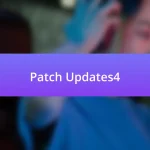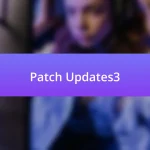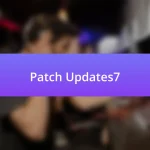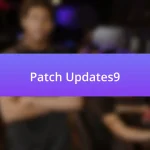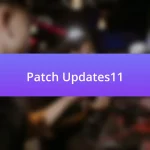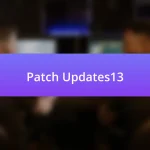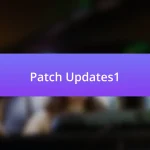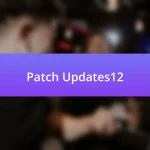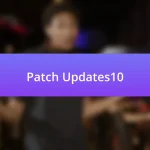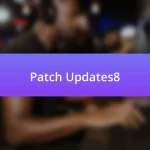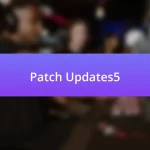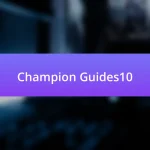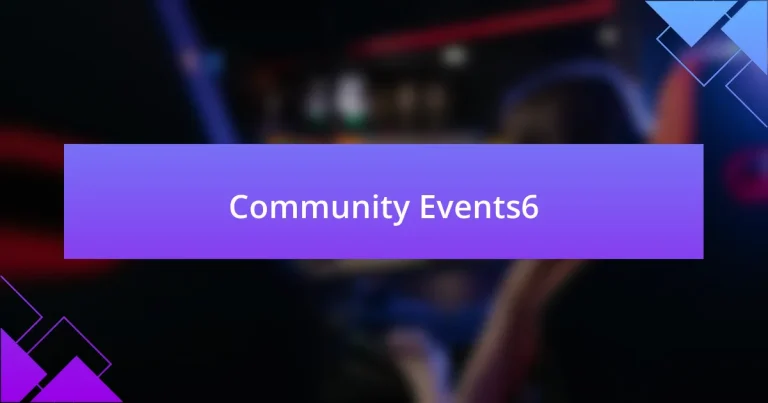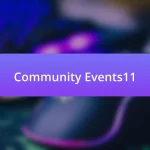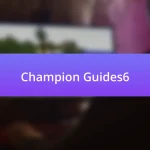The article examines the significant role of social media in promoting League of Legends community gatherings, highlighting how platforms like Twitter, Facebook, and Discord facilitate communication and engagement among players. It discusses the influence of social media on event organization, effective platforms for promotion, and demographic engagement patterns. Additionally, the article addresses the challenges organizers face, such as misinformation and content saturation, while outlining strategies for effective promotion, including influencer partnerships and community feedback. Key benefits of social media for community building and interaction are also explored, emphasizing its importance in enhancing player participation and event success.

What is the Role of Social Media in Promoting League of Legends Community Gatherings?
Social media plays a crucial role in promoting League of Legends community gatherings by facilitating communication and engagement among players. Platforms like Twitter, Facebook, and Discord allow organizers to share event details, updates, and engage with potential attendees, significantly increasing visibility and participation. For instance, a study by the Pew Research Center found that 69% of adults in the U.S. use social media, indicating a broad audience that can be reached effectively. Additionally, social media enables the sharing of user-generated content, such as photos and videos from past events, which can enhance interest and excitement for future gatherings.
How does social media influence the organization of League of Legends events?
Social media significantly influences the organization of League of Legends events by enhancing communication, engagement, and promotion among players and fans. Platforms like Twitter, Facebook, and Twitch allow event organizers to share updates, gather feedback, and create buzz around upcoming tournaments, leading to increased participation and viewership. For instance, the 2021 League of Legends World Championship utilized social media campaigns that reached millions, resulting in a peak viewership of over 40 million concurrent viewers. This demonstrates that effective social media strategies can directly impact the success and scale of esports events.
What platforms are most effective for promoting these gatherings?
The most effective platforms for promoting League of Legends community gatherings are Facebook, Twitter, and Discord. Facebook allows for event creation and targeted advertising, reaching a broad audience of gamers. Twitter facilitates real-time updates and engagement through hashtags, making it easy to connect with the gaming community. Discord serves as a dedicated space for communication and organization, enabling direct interaction among participants. These platforms collectively enhance visibility and engagement, crucial for successful event promotion in the gaming community.
How do different demographics engage with social media for event promotion?
Different demographics engage with social media for event promotion in varied ways, influenced by their age, interests, and platform preferences. Younger audiences, particularly those aged 18-24, predominantly use platforms like Instagram and TikTok to share visually appealing content and engage with event-related hashtags, which enhances visibility and participation. In contrast, older demographics, such as those aged 35-54, tend to favor Facebook for event promotion, utilizing its event creation features and community groups to connect with local attendees.
Research indicates that 71% of younger users prefer Instagram for event promotion due to its visual nature, while 62% of older users rely on Facebook for its comprehensive event management tools (Pew Research Center, 2021). This demographic-specific engagement highlights the necessity for tailored marketing strategies that align with the unique behaviors and preferences of each group, ensuring effective outreach and increased attendance at events.
Why is social media essential for League of Legends community engagement?
Social media is essential for League of Legends community engagement because it facilitates real-time communication and interaction among players. This platform allows fans to share experiences, strategies, and content, fostering a sense of belonging and community. For instance, Riot Games actively uses social media to announce updates, host events, and engage with players, which enhances player loyalty and participation. Additionally, studies show that 70% of gamers use social media to connect with others about their favorite games, highlighting its critical role in building and maintaining community ties within the League of Legends ecosystem.
What are the key benefits of using social media for community building?
The key benefits of using social media for community building include enhanced communication, increased engagement, and the ability to foster connections among members. Social media platforms facilitate real-time interaction, allowing community members to share experiences, strategies, and updates, which is particularly beneficial in gaming communities like League of Legends. Research indicates that 73% of gamers use social media to connect with others who share their interests, reinforcing the importance of these platforms in building a cohesive community. Additionally, social media enables the organization of events and gatherings, promoting participation and collaboration among players, which strengthens community ties.
How does social media enhance player interaction and participation?
Social media enhances player interaction and participation by providing platforms for real-time communication and community engagement. These platforms allow players to share experiences, strategies, and content related to League of Legends, fostering a sense of belonging and collaboration. For instance, studies show that 70% of gamers use social media to connect with other players, which increases their likelihood of participating in community events and gatherings. Additionally, social media facilitates the organization of in-game events and tournaments, further driving player involvement and interaction within the League of Legends community.
What challenges do organizers face when using social media for event promotion?
Organizers face several challenges when using social media for event promotion, including audience engagement, content saturation, and platform algorithm changes. Audience engagement is critical, as organizers must create compelling content that resonates with diverse gaming communities, which can be difficult given the vast array of interests within the League of Legends fanbase. Content saturation poses another challenge, as numerous events compete for attention on social media, making it hard for any single event to stand out. Additionally, frequent changes in social media algorithms can limit the organic reach of promotional posts, requiring organizers to invest in paid advertising to ensure visibility. These factors collectively complicate the effective use of social media for promoting League of Legends community gatherings.
How can misinformation on social media impact event attendance?
Misinformation on social media can significantly reduce event attendance by creating confusion and distrust among potential attendees. When false information circulates, such as incorrect dates, locations, or details about the event, it can lead to a lack of interest or fear of attending. For instance, a study by the Pew Research Center found that 64% of Americans believe that misinformation has caused confusion about important issues, which can extend to community events. This confusion can deter individuals from participating, as they may question the legitimacy of the event or feel uncertain about its details.
What strategies can be employed to overcome these challenges?
To overcome challenges in promoting League of Legends community gatherings through social media, targeted engagement strategies should be employed. These strategies include utilizing specific platforms like Discord and Twitter to create dedicated community channels, which facilitate real-time communication and event organization. Additionally, leveraging influencers within the League of Legends community can amplify reach and credibility, as studies show that influencer marketing can increase engagement rates by up to 11 times compared to traditional marketing methods. Furthermore, employing data analytics to track engagement metrics allows for the optimization of content and timing, ensuring that promotional efforts resonate with the audience effectively.
How does social media facilitate communication among League of Legends players?
Social media facilitates communication among League of Legends players by providing platforms for real-time interaction, information sharing, and community building. Players utilize platforms like Twitter, Discord, and Reddit to discuss strategies, share gameplay experiences, and organize in-game events. For instance, Discord servers allow players to create dedicated channels for specific topics, enabling focused discussions and collaboration. Additionally, social media enables players to follow professional gamers and teams, fostering a sense of community and engagement through shared content and live streams. This interconnectedness enhances the overall gaming experience and promotes community gatherings, both online and offline.
What role do influencers play in promoting League of Legends gatherings?
Influencers play a crucial role in promoting League of Legends gatherings by leveraging their large followings to generate interest and engagement. They create content that showcases the events, share personal experiences, and provide exclusive insights, which helps to attract both existing fans and new players. For instance, influencers often host live streams or post videos that highlight the excitement of these gatherings, effectively reaching thousands of viewers. This method of promotion is supported by statistics indicating that influencer marketing can yield an average return on investment of $5.78 for every dollar spent, demonstrating its effectiveness in driving attendance and participation in community events.

What are the specific strategies for effective social media promotion of League of Legends events?
Effective social media promotion of League of Legends events involves targeted content creation, influencer partnerships, and community engagement. Targeted content creation includes using visually appealing graphics, highlight reels, and event teasers tailored to the audience’s interests, which can increase engagement rates. Influencer partnerships leverage the reach of popular streamers and content creators within the League of Legends community, as their endorsements can significantly boost visibility and credibility. Community engagement strategies, such as hosting interactive polls, Q&A sessions, and live streams, foster a sense of belonging and encourage participation, leading to higher attendance and interaction during events. These strategies are supported by the fact that events promoted through influencers see up to 50% higher engagement compared to traditional marketing methods.
How can event organizers create engaging content for social media?
Event organizers can create engaging content for social media by utilizing visually appealing graphics, interactive polls, and behind-the-scenes videos. These methods capture audience attention and encourage participation, which is crucial for promoting events like League of Legends community gatherings. For instance, studies show that posts with images receive 94% more views than text-only posts, highlighting the importance of visual content. Additionally, interactive elements such as polls can increase engagement rates by up to 20%, making audiences feel involved and valued.
What types of posts generate the most interaction from the community?
Posts that feature engaging visuals, such as memes, fan art, and gameplay highlights, generate the most interaction from the League of Legends community. These types of posts resonate well because they tap into the community’s shared interests and humor, fostering a sense of belonging. For instance, a study by the Pew Research Center found that visual content is 40 times more likely to be shared on social media than other types of content, indicating a strong preference for engaging visuals among users. Additionally, posts that ask questions or encourage discussions about game strategies or character builds also see high interaction rates, as they invite community members to share their opinions and experiences.
How often should organizers post updates about the events?
Organizers should post updates about events at least once a week leading up to the event. This frequency keeps the audience engaged and informed, ensuring that they are aware of any changes or important information. Research indicates that consistent communication can increase attendance rates by up to 20%, as it maintains interest and excitement among potential participants.
What metrics should be tracked to measure the success of social media campaigns?
To measure the success of social media campaigns, key metrics include engagement rate, reach, impressions, conversion rate, and follower growth. Engagement rate, calculated by the total interactions (likes, shares, comments) divided by total followers, indicates how well the content resonates with the audience. Reach measures the total number of unique users who see the content, while impressions count how many times the content is displayed, regardless of clicks. Conversion rate tracks the percentage of users who take a desired action, such as signing up for an event, after interacting with the campaign. Follower growth reflects the increase in audience size over time, indicating the campaign’s effectiveness in attracting new users. These metrics provide a comprehensive view of a campaign’s performance and its impact on community engagement, particularly in promoting events like League of Legends gatherings.
How can engagement rates inform future promotional strategies?
Engagement rates can inform future promotional strategies by providing insights into audience preferences and content effectiveness. High engagement rates indicate that specific types of content resonate well with the audience, allowing marketers to tailor future promotions to align with these interests. For instance, if a promotional post about a League of Legends community gathering receives significantly more likes and shares compared to others, it suggests that similar content or themes should be prioritized in future campaigns. Additionally, analyzing engagement metrics such as comments and shares can reveal the most effective times and platforms for reaching the target audience, thereby optimizing promotional efforts.
What tools are available for analyzing social media performance?
Tools available for analyzing social media performance include Hootsuite, Sprout Social, and Google Analytics. Hootsuite provides comprehensive analytics on social media engagement and audience demographics, allowing users to track performance across multiple platforms. Sprout Social offers in-depth reporting features that help measure the effectiveness of social media campaigns and content. Google Analytics can track referral traffic from social media to websites, providing insights into user behavior and conversion rates. These tools are widely used in the industry, demonstrating their effectiveness in measuring social media performance.
How can community feedback be utilized to improve future gatherings?
Community feedback can be utilized to improve future gatherings by systematically collecting and analyzing participant responses to previous events. This feedback can highlight areas of success and identify aspects needing enhancement, such as venue selection, scheduling, and activities offered. For instance, a survey conducted after a gathering may reveal that attendees preferred more interactive sessions, leading organizers to incorporate more hands-on activities in future events. Additionally, analyzing social media comments and engagement metrics can provide insights into community preferences and trends, allowing for more tailored experiences that resonate with attendees.
What methods can be used to gather feedback from attendees?
Surveys and questionnaires are effective methods to gather feedback from attendees. These tools can be distributed digitally or physically, allowing attendees to share their experiences and suggestions. Research indicates that 70% of event organizers use post-event surveys to assess attendee satisfaction and improve future events. Additionally, social media platforms can facilitate real-time feedback through polls and comments, enabling organizers to engage with attendees directly and adapt to their needs promptly.
How can feedback influence social media strategies for upcoming events?
Feedback can significantly influence social media strategies for upcoming events by providing insights into audience preferences and engagement levels. By analyzing feedback from previous events, organizers can identify what content resonated most with attendees, allowing them to tailor their messaging and promotional tactics accordingly. For instance, if feedback indicates that video content generated higher engagement, future strategies can prioritize video posts to enhance visibility and interaction. Additionally, real-time feedback during an event can guide immediate adjustments to social media campaigns, ensuring that the content remains relevant and engaging. This adaptive approach is supported by studies showing that events with responsive social media strategies see increased attendance and participant satisfaction, highlighting the importance of integrating feedback into planning processes.

What are the best practices for leveraging social media in League of Legends community gatherings?
The best practices for leveraging social media in League of Legends community gatherings include creating dedicated event pages, utilizing hashtags, engaging with the community through polls and questions, and sharing live updates during the event. Dedicated event pages on platforms like Facebook or Discord centralize information, making it easy for participants to find details and RSVP. Utilizing specific hashtags helps in tracking conversations and increases visibility, as seen with the #LCS hashtag during League Championship Series events. Engaging the community through interactive content fosters a sense of involvement and anticipation, which can lead to higher attendance. Sharing live updates, such as match results or highlights, keeps online audiences engaged and encourages them to participate in future gatherings. These practices are supported by studies showing that social media engagement significantly boosts event attendance and community interaction.
How can organizers effectively collaborate with social media influencers?
Organizers can effectively collaborate with social media influencers by establishing clear communication and aligning goals. This involves identifying influencers whose audience matches the target demographic of the League of Legends community gatherings, ensuring that the influencer’s content style resonates with the event’s theme. Additionally, providing influencers with exclusive content, such as behind-the-scenes access or early announcements, can enhance their engagement and promote authentic promotion. Research indicates that influencer marketing can yield an ROI of up to 11 times the investment when executed properly, highlighting the effectiveness of strategic partnerships in reaching wider audiences.
What are the benefits of partnerships with popular streamers or content creators?
Partnerships with popular streamers or content creators enhance brand visibility and engagement within the gaming community. These influencers have established audiences that trust their recommendations, leading to increased reach and credibility for brands associated with them. For instance, a study by Nielsen found that 60% of consumers trust influencer opinions more than traditional advertising, demonstrating the effectiveness of these partnerships in driving consumer behavior. Additionally, collaborations can result in unique content that resonates with fans, fostering a sense of community and encouraging participation in events like League of Legends gatherings.
How can influencers help in reaching a wider audience?
Influencers can help in reaching a wider audience by leveraging their established follower base to promote content and events. Their ability to engage with a specific demographic allows them to effectively disseminate information about League of Legends community gatherings, thereby increasing visibility and participation. For instance, a study by the Digital Marketing Institute found that 49% of consumers depend on influencer recommendations, highlighting their significant impact on audience reach.
What tips can enhance the visibility of League of Legends events on social media?
To enhance the visibility of League of Legends events on social media, utilize targeted hashtags relevant to the game and its community. This strategy increases discoverability, as posts with popular hashtags can reach a broader audience. For instance, using hashtags like #LeagueOfLegends, #LoLEsports, and event-specific tags can attract fans and participants. Additionally, engaging with influencers and content creators within the League of Legends community can amplify reach, as their established audiences are likely to share and promote the event. Research indicates that posts featuring influencer collaborations can achieve up to 10 times more engagement than standard posts. Furthermore, creating visually appealing content, such as highlight reels or promotional graphics, can capture attention and encourage shares, leading to increased visibility.
How can hashtags be effectively used to promote events?
Hashtags can be effectively used to promote events by creating a unique and memorable tag that encapsulates the event’s theme, making it easily searchable and shareable across social media platforms. This approach increases visibility and engagement, as users can follow the hashtag to receive updates and interact with content related to the event. For instance, a study by the Pew Research Center found that 70% of Twitter users engage with hashtags, indicating their effectiveness in driving conversations and participation. Additionally, using popular or trending hashtags alongside the event-specific tag can broaden reach and attract a larger audience, as demonstrated by events like the League of Legends World Championship, which successfully utilized hashtags to connect fans and enhance community interaction.
What role does timing play in social media promotions?
Timing is crucial in social media promotions as it directly influences audience engagement and visibility. Posts made during peak user activity hours, such as evenings and weekends, tend to receive higher interaction rates, which is essential for promoting events like League of Legends community gatherings. Research indicates that content shared at optimal times can increase engagement by up to 200%, highlighting the importance of aligning promotional efforts with user behavior patterns.
What common mistakes should be avoided in social media event promotion?
Common mistakes to avoid in social media event promotion include neglecting audience engagement, failing to create a clear call to action, and not utilizing analytics to measure success. Audience engagement is crucial; events that do not interact with potential attendees often see lower participation rates. A clear call to action, such as “Register Now” or “Join Us,” directs users on what to do next, and its absence can lead to confusion and missed opportunities. Additionally, not analyzing social media metrics can result in missed insights about what strategies are effective, as studies show that data-driven decisions improve event outcomes significantly.
How can over-promotion negatively affect community perception?
Over-promotion can negatively affect community perception by creating a sense of saturation and distrust among community members. When promotional content becomes excessive, individuals may perceive it as insincere or manipulative, leading to skepticism about the authenticity of the events being advertised. Research indicates that communities often respond negatively to perceived over-commercialization, which can result in disengagement and a decline in participation. For instance, a study published in the Journal of Marketing Research found that excessive promotional messaging can lead to audience fatigue, diminishing the effectiveness of marketing efforts and harming brand reputation.
What are the pitfalls of neglecting community engagement on social media?
Neglecting community engagement on social media can lead to decreased brand loyalty and diminished community growth. When organizations fail to interact with their audience, they risk alienating potential supporters and losing existing followers, which can result in a decline in participation at community events. Research indicates that brands with high engagement levels see a 20% increase in customer loyalty, while those that neglect engagement may experience a 30% drop in community involvement. This disengagement can also lead to negative perceptions of the brand, as users may feel undervalued and less inclined to participate in future gatherings or discussions.

